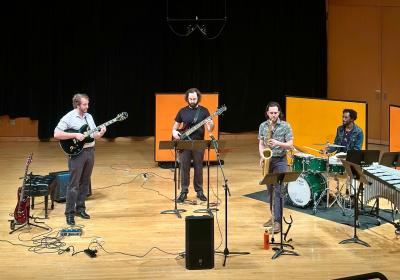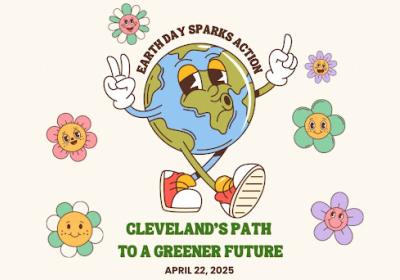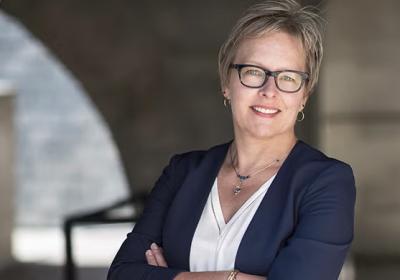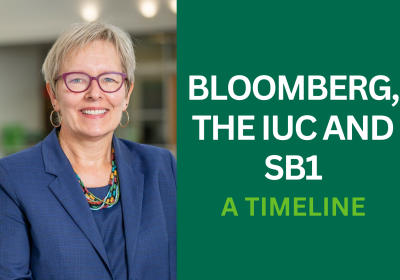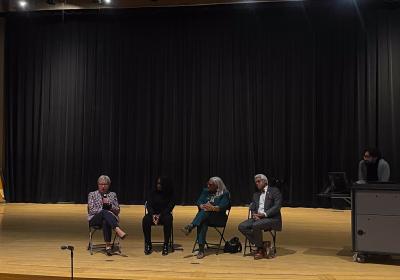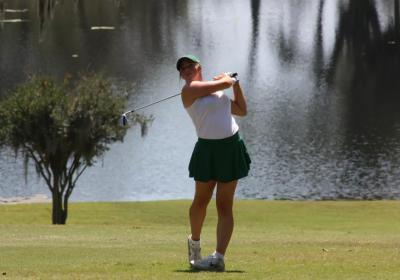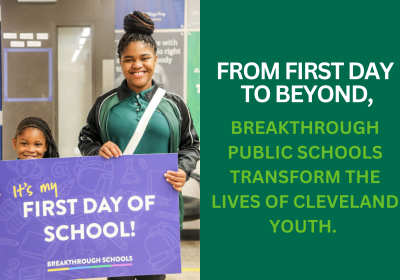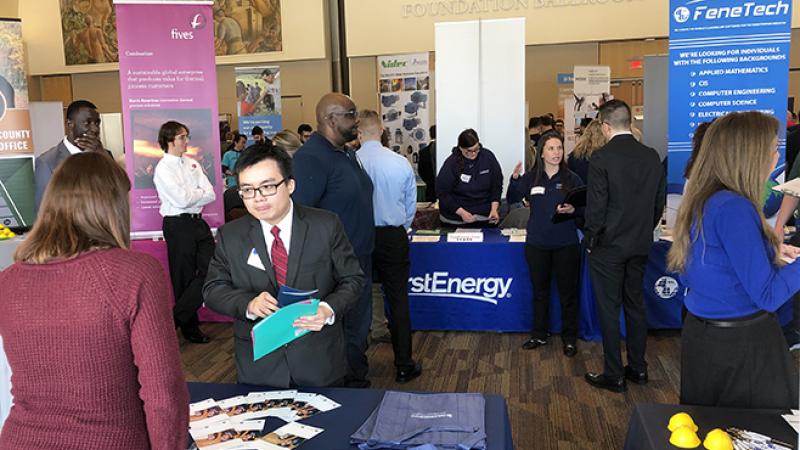
Students engineer future careers at annual connection fair
Forty-five engineering firms specifically sought mechanical engineering students for internships and co-ops when the Washkewicz College of Engineering held its second annual spring connection fair on Feb. 14.
A total of 64 firms attended the event, seeking upper-level students for internships and co-ops that organizers say, have the potential to lead to paying careers.
Although this is the second spring fair, this is the eighth year the college of engineering has held a connection fair, said Sandra English, senior manager for the Center for Engineering Experimental Learning. Before she joined Cleveland State, the engineering program did not have any kind of career fair.
“When I started here eight years ago,” English said, “industry members contacted me and asked why Cleveland State doesn’t have a STEM or engineering fair like Akron or Cincinnati or Toledo.”
English did not have that answers to these questions, so she did her own research. After traveling to other schools and seeing how their connection fairs function, English decided to organize Cleveland State’s first engineering fair.
“We had employers everywhere; we had students everywhere; the fire marshal almost shut us down,” English said.
The fall fairs grew so large that, two years ago, it became necessary to hold fairs in the spring, too, as they attract about 500 to 600 students, English explained.
As students checked in, they received a circular color-coded sticker to indicate their specific majors
Inside the fair, representatives from interested companies filled six rows of tables. Students ranging from freshmen to seniors roamed around in professional attire distributing resumes. The resume was an important factor to most of the employers.
Julie Profeta, a Lincoln Electric representative, ex-plained that resumes can be appealing without listing much professional experience. Now an employer’s recruiter, Profeta first attended a Cleveland State connection fair as a student with limited experience.
“I did a lot of projects on my own,” Profeta said. “If I struggled to find an internship during the summer I did projects with my dad. I worked on some cars and tried to do whatever I could to get experience. But I also went to career fairs.”
Aaron Herrmonn, a junior majoring in mechanical engineering, plans to create an asteroid mining company to collect materials from space that may advance human society as well as boost him into the upper 1% economic class. But first, he needs an internship.
“I need to learn a lot more about how growing a company works and how reaching out and selling things works,” Herrmonn said. “There’s a lot of things I need to learn and I need a deep and developed understanding of all of it.”
Jack Redilla, president of Core Technology, who was scouting for computer engineers collected a low number of resumes in comparison with the firms that sought mechanical engineers.
“By this time last year, we had 30 resumes, and this time we have three,” Redilla said. “I don’t know if that’s because the market is so good and these students already have internships or jobs.”
One of the reasons fewer students approached his table could have been because of the CareerFairPlus app that the engineering department started using last year for their fairs. The app makes the experience for the students paperless and allows them to filter companies to fit with their major.
Junior Ines Deric found this feature helpful.
“I downloaded the CareerFairPlus app and filtered it so it would just be jobs related to my major,” Deric said. “For previous career fairs, when I didn’t have the app, it was pretty tedious to look up all the companies because I had to make sure they were hiring my major."


